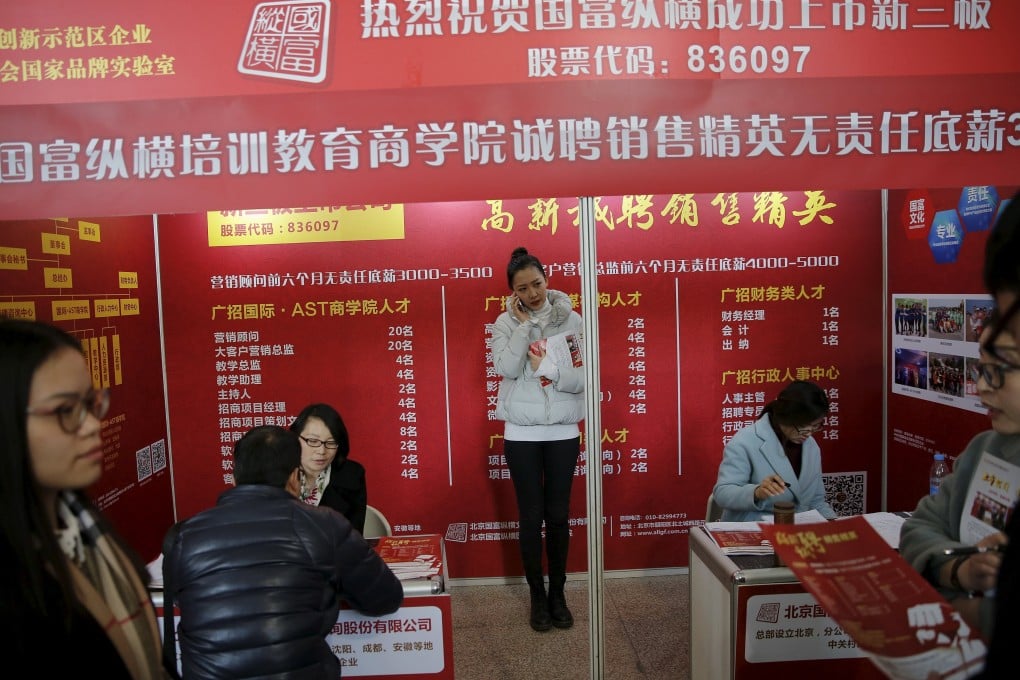China’s trade war-hit job market to be overseen by special task force to avoid ‘a massive jobless situation’
- Vice-Premier Hu Chunhua will head the State Council Employment Work Leading Group to ‘enhance leadership and coordination of work related to employment’
- Sony Mobile, Cisco Systems and Oracle have all laid-off staff or closed factories in recent months, raising questions over Beijing’s official unemployment figures

China’s increasing concern over unemployment due to the continuing escalation of the trade war with the United States and in the wake of recent high-profile lay-offs by the likes of Sony Mobile, Cisco Systems and Oracle has led Beijing to set up a special task force to monitor the country’s employment situation.
The State Council Employment Work Leading Group is an upgrade from the previous interministerial coordination conference, and has a mission to “enhance leadership and coordination of work related to employment”, according to a statement by the State Council published on Wednesday.
The group will be headed by Vice-Premier Hu Chunhua, underscoring its importance to the domestic policymaking process.
The group will include members from more than 20 ministries and government agencies, including the labour ministry, the finance ministry, the central bank and the veterans affairs ministry.

The move comes amid signs that job market stress is increasingly visible in the world’s second largest economy as export-oriented manufacturers and technology firms slash jobs due to the trade war.